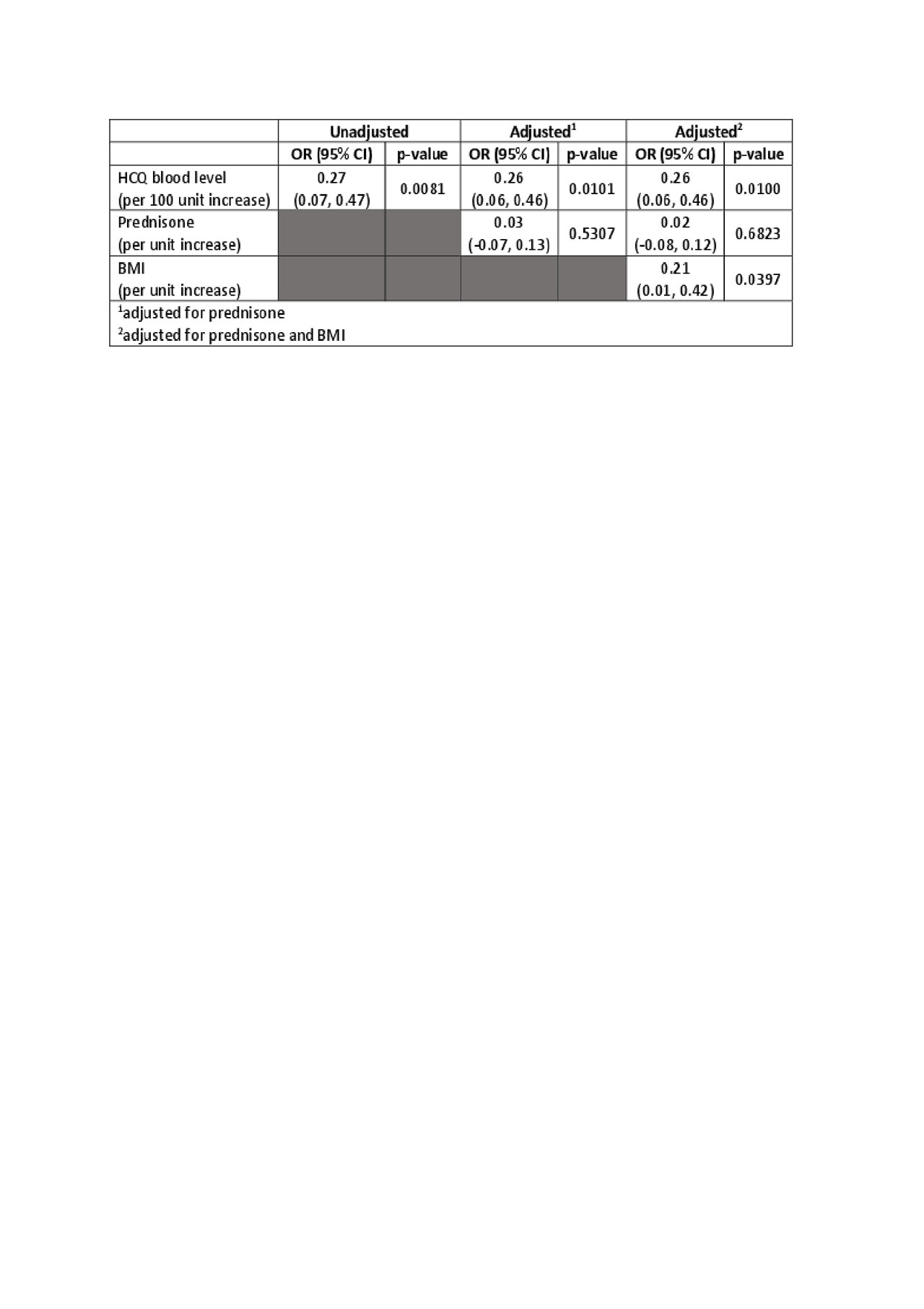Session Information
Session Type: Poster Session (Tuesday)
Session Time: 9:00AM-11:00AM
Background/Purpose: Hydroxychloroquine is considered an immunomodulatory that does not affect serology. Hydroxychloroquine (HCQ) was recently introduced into Japan. In SLE patients who started hydroxychloroquine, there was improvement in hypocomplementemia (Y Ikeda, H Tamaki, M Okada. Abstract, Lupus 2019 Meeting, San Francisco, CA, April 6, 2019). We asked whether this was true in United States patients as well.
Methods: A paired analysis of visits where HCQ level was 0 and a visit where it was higher was done. HCQ blood levels were quantified by liquid chromatography-tandem mass spectrometry. The visit with HCQ level of 0 must also have had low C3 (C3 < 79). There were 59 paired visits with HCQ blood level of 0 at first visit. We took the first visit in which the HCQ blood level was 0. We also did a “within patient” analysis of all visits in a patient who had at least one visit with a HCQ blood level of 0, using a linear mixed effects model.
Results: Figure 1 shows the C3 levels in ng/mL for the paired visits. The average difference in C3 level between the visit with HCQ less than 60 ng/mL (negative) and the visit with HCQ >=60 ng/mL (positive) is 7.08 (p = 0.0022). Table 2 shows the “within patient” analysis of ALL visits, with a p-value of 0.008. HCQ blood level remained significant after adjusting for prednisone, or prednisone and body mass index (BMI).
Conclusion: HCQ increases low C3, confirming the Japanese finding. This may explain multiple benefits of HCQ such as prevention of renal lupus and prevention of thrombosis, in which low C3 is an important risk factor. It also may affect SLEDAI improvement in clinical trials, if SLE patients become more compliant with hydroxychloroquine.

ACR 2019 Abstract Hydroxychloroquine Increases Low C3 in SLE-Figure1

ACR 2019 Abstract Hydroxychloroquine Increases Low C3 in SLE-Table2
To cite this abstract in AMA style:
Petri M, Li J. Hydroxychloroquine Increases Low C3 in SLE [abstract]. Arthritis Rheumatol. 2019; 71 (suppl 10). https://acrabstracts.org/abstract/hydroxychloroquine-increases-low-c3-in-sle/. Accessed .« Back to 2019 ACR/ARP Annual Meeting
ACR Meeting Abstracts - https://acrabstracts.org/abstract/hydroxychloroquine-increases-low-c3-in-sle/
